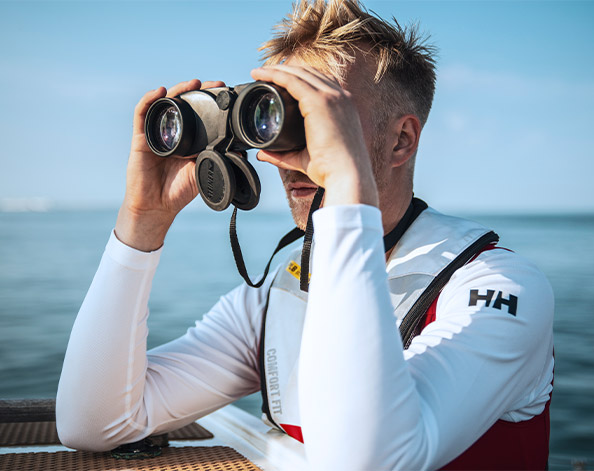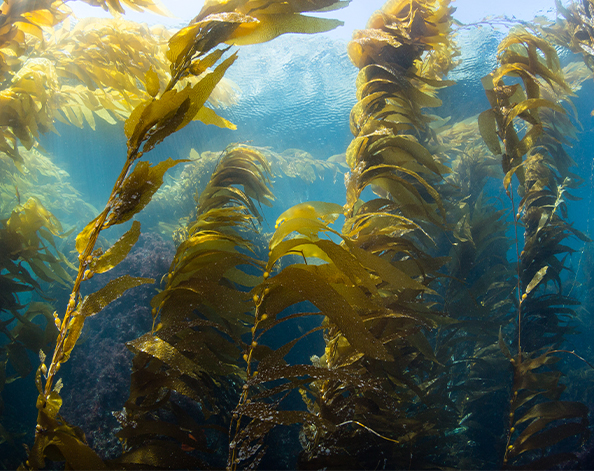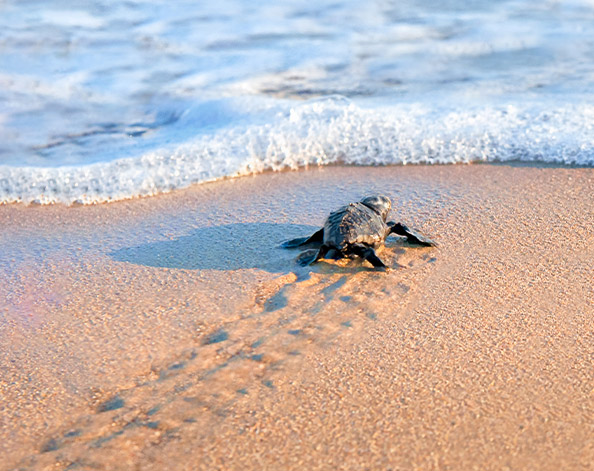Get Focus insights straight to your inbox
Leading entrepreneurs and business leaders working in the oceanic sustainability space recently completed Bright Tide’s Blue Economy Ocean Accelerator Programme, sponsored by Investec UK.
The eight-week scheme helps to scale ideas and supports those working to improve ocean health while achieving commercial success. It aligns with Investec’s purpose to ‘deliver enduring worth, living in society, not off of it’.
The marine ecosystem is a vital part of the UN sustainable development goals and the High Level Panel for a Sustainable Ocean Economy has estimated that the value of related investments could grow by 500% over the next 30 years.
Here, the innovators involved in the programme share their learnings for would-be entrepreneurs and investors in this space.
1. Be willing to listen and adapt
The journey to a sustainable ocean economy has just begun. Many blue economy entrepreneurs have pivoted certain aspects of their operations, or their entire strategy, as new information has emerged.
One example is Blue Trace, which has evolved to become a digital shellfish tracking and traceability business. CEO Chip Terry told us, “The biggest problems aren’t always the ones you think they are. We launched with a farm management software but pivoted to focus exclusively on tagging and traceability after spending time with our clients and learning what problems they most critically needed help solving.” His advice for those getting started in the ocean economy is to “listen to your clients and pay attention to their behaviour.”
The team at 4EI, a space data and analytics company agreed: “The main advice would be to talk to potential customers, users, and partners; be open-minded and don't lead them.”
Another story of adaptation came from the Beach Collective, a blue circular economy platform powered by a native currency, $BEACH. Their team shared what they’ve learned about restoring and regenerating ecosystems:
“So much of the job is about getting out of the way of nature rather than trying to assert our plans. A classic example is mangrove restoration. Initially, we made the same mistake as many other mangrove restoration projects, which is to plant as many seedlings as possible and hope they survive. But, after receiving the advice and guidance of Mangrove Action Project, we learned that providing the nearby village with more efficient stoves is often a more effective intervention than planting seedlings, since it reduces the mangroves’ biggest stressor: deforestation for firewood.”

Working on innovation in the maritime industry can be daunting... My advice would be to not expect overnight success, but to focus on the long-term potential.
2. Be prepared to educate and share
Open dialogue will be critical to delivering a sustainable ocean economy. Several entrepreneurs stressed that their biggest challenges were driving awareness and overcoming misconceptions.
Wietse van der Werfe, CEO and Founder of Sea Ranger Service told us that “ocean conservation is still perceived by many as charitable work.” This misconception prevents investment and sector growth, so “changing mindsets for investors, clients, and the wider business community is a crucial step forward.”
Other knowledge gaps are more specific. For example, Urchinomics aims to restore kelp forests by removing overgrazing sea urchins and selling them to restaurants. CEO Brian Tsuyoshi Takeda told us that one of their biggest challenges is a lack of awareness of the problem they’re solving:
“Catastrophes under the surface of the ocean typically get less attention, and when people do acknowledge important ocean issues, they either think of coral bleaching, marine plastics, or endangered marine mammals. Kelp forests, while equally as important as coral reefs, go relatively unnoticed, especially considering their widespread collapse globally.”

Catastrophes under the surface of the ocean typically get less attention... Kelp forests, while equally as important as coral reefs, go relatively unnoticed, especially considering their widespread collapse globally.
3. Regulation can work for and against you
Many entrepreneurs told us that they had run into problems with food safety or environmental regulation, which wasn’t drafted with the ocean in mind.
Urchinomics’ Brian Tsuyoshi Takeda said that “despite the best intentions, existing environmental regulations can hinder restoration efforts. Finding ways to work within such regulations, while working with wider stakeholders to amend them to address rapidly changing environmental conditions, takes a lot more time and energy than expected.”
The Blue Trace team has experienced similar difficulties. They operate in all of the coastal US states and three countries and told us that “one of the biggest challenges we face is the lack of harmonised regulation. Each state and country has its own rules and our product has to operate seamlessly in all jurisdictions.”
However, as the regulatory environment changes and increasingly addresses the ocean specifically, there will be opportunities for smart businesses to leverage new rules. Blue Trace also told us, “Upcoming FDA rules [requiring traceability of all seafood] are filling our sails. Everyone in the US is going to need a solution like ours – and we believe we are the only ones offering a simple, turnkey solution for the small to mid-sized players.”
4. Progress requires patience
A sustainable ocean economy cannot be delivered overnight. Just as on land, certain sectors will be easier to transform than others and, for some, it will be a slow process of active engagement.
Sea Ranger Service’s Wietse van der Werfe gave us the following advice. “Working on innovation in the maritime industry can be daunting, as change in the sector is affected slowly. My advice would be to not expect overnight success, but to focus on the long-term potential.”
Similarly, Brian Tsuyoshi Takeda from Urchinomics said, “Both entrepreneurs and investors need to be much more patient when driving impact-led business models that enable nature-based solutions. Unfortunately, doing good tends to be a lot harder than it seems on the surface.”

So much of the job is about getting out of the way of nature rather than trying to assert our plans.
5. The investment potential is enormous
While there are obvious challenges and obstacles that need to be addressed, all the entrepreneurs we spoke to felt strongly about the investment potential that the blue economy offers right now.
Dr. Angela Mead, from the UK seaweed farm startup Biome Algae, wants investors to know that “the seaweed industry is an exciting space for investment! It is notable that within just a few years, global investment in the sector increased by 36% and, in Europe, it has increased 24 times over ten years. We strongly feel the opportunity for investment is now.”
Daniel Hooft, from Kelp Blue Biotech, agrees: “Investors need to understand that while the blue economy is still not very large compared to others, its potential is enormous, especially when it comes to accelerating the transition to sustainable development.”

